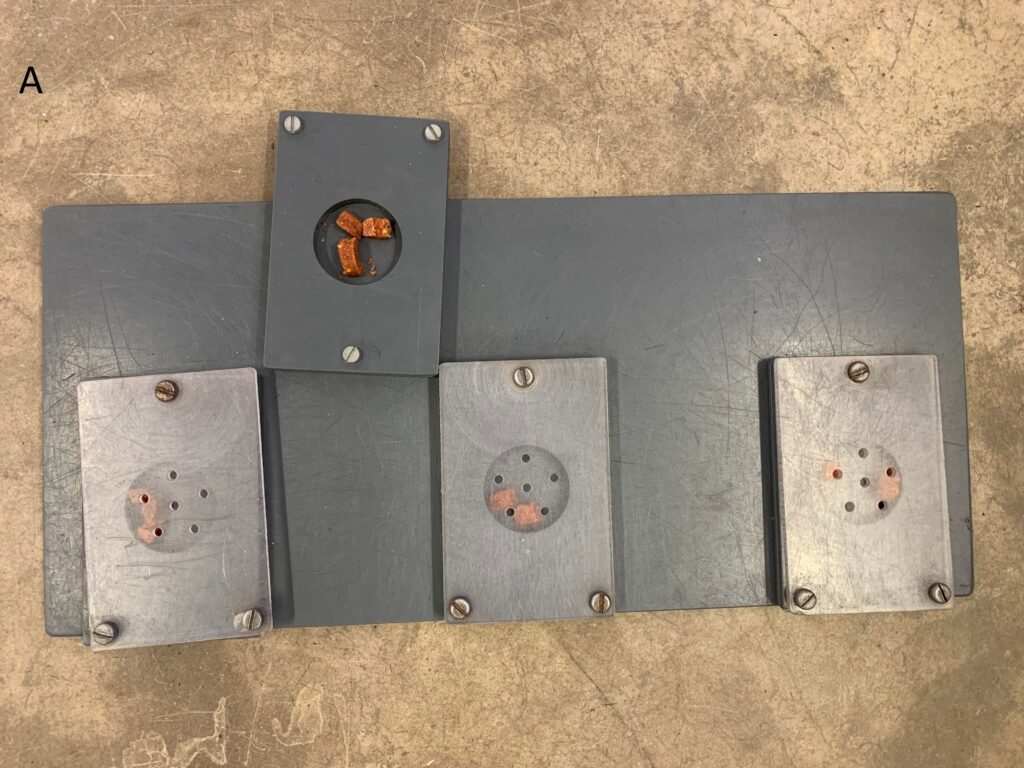Subjects
In this study a total of 83 dogs were used, out of these 33 were control dogs that have lived with the same owner since puppyhood. 30 were rehomed dogs, and the final 20 dogs were shelter dogs.
The dogs were tested behaviourally in an unsolvable problem task, memory test and eye contact test. In addition, sleep patterns were assessed with acitivity collars and long term stress levels were assessed with hair cortisol analyses.
The Unsolvable Problem Task
Unsolvable Problem Task was used to assess dogs’ problem solving abilities, contact-seeking behaviour and stress-related behaviours. The device for the test consisted of a plastic tray with three plates with transparent covers with odour ports (Figure 1). Two of them were solvable by pushing the lid aside to access to the treat, while the middle one was unsolvable as the lid was screwed on and could not be opened.

Unsolvable Problem Task.
Memory test
A memory test was performed to study aspects of cognitive abilities. The test measured the dogs’ persistence to find a hidden food reward, as well as its ability to remember its location after a one-minute delay.
Eye contact test
A test measuring eye contact was performed to assess social engagement. The owner and dog were facing each other, the owner held a treat to their face and the experimenter recorded if and when the dogs broke eye contact within 90 seconds.
Sleep patterns and hair cortisol
Sleep patterns were assessed with an activity collar and long term stress levels were assessed with measures of cortisol concentrations in hair.